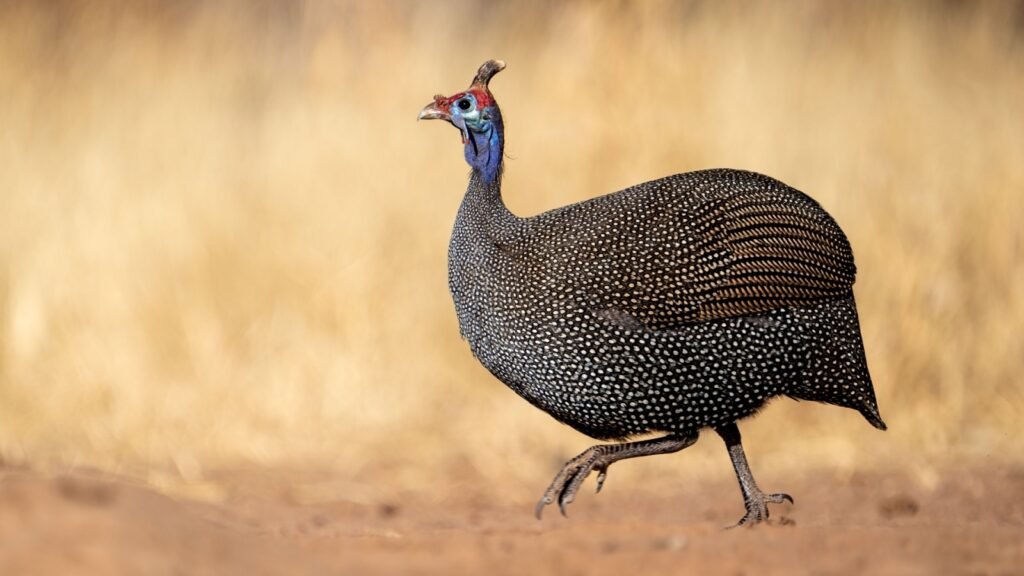Guinea fowl can be both a delightful and challenging addition to your homestead. Known for their hardy nature and distinctive calls, these birds offer more than just pest control. Before you decide to raise guinea fowl, there are a few key things to understand about their behavior and care. Here’s a list of insights I wish I had known before bringing them home.

1. They Are Excellent Pest Controllers
Guinea fowl are exceptional at controlling pests. They feast on ticks, fleas, and even small snakes, helping keep your property clear of unwanted critters. However, they’re not selective and might also munch on beneficial insects and small amphibians.
2. They Are Incredibly Noisy
One thing no one can overstate is how loud guinea fowl are. They use their piercing calls to communicate, especially if they sense danger. It’s an effective alarm system, but it can be quite disruptive, especially if you have close neighbors.
3. They Roam Widely
Guinea fowl love to roam. If you’re planning on keeping them, be prepared for them to wander far and wide. They need plenty of space, and without proper fencing, they might stray onto neighboring properties.
4. They Can Be Aggressive
While generally good-natured with humans, guinea fowl can be aggressive towards each other and other poultry, especially during the breeding season. They establish a pecking order, and squabbles can sometimes lead to injuries.
5. They Are Not Very Tame
Unlike chickens, guinea fowl are not easily tamed. They retain much of their wild nature, which makes them less affectionate and harder to handle. Don’t expect them to eat from your hand or enjoy being petted.
6. They Lay Seasonally
Guinea fowl are seasonal layers, typically laying eggs in the warmer months. Their eggs are smaller than chicken eggs but are considered a delicacy. However, don’t expect them to lay all year round like chickens.
7. Nesting Habits Are Unpredictable
Finding where guinea fowl have laid their eggs can be a real challenge. They prefer to nest in hidden, often inconvenient places, which makes collecting eggs a bit of a treasure hunt.
8. They Are Hardy Birds
Guinea fowl are very hardy and resistant to many of the diseases that can affect chickens. This makes them relatively low maintenance in terms of health care, but regular check-ups are still recommended.
9. They Require Secure Roosting Spots
At night, guinea fowl prefer to roost in trees to stay safe from predators. If trees aren’t available, they will need high roosting spots provided within their enclosure to feel secure.
10. They Can Fly
Unlike most domestic poultry, guinea fowl are capable flyers. They can easily fly over fences and other barriers, so a covered enclosure might be necessary to keep them contained.
11. They Help with Weed Control
In addition to pest control, guinea fowl will peck at and eat weeds around your property. This can help with garden maintenance, though their non-selective eating habits might endanger some plants.
12. They Are Social Birds
Guinea fowl thrive in groups and can become stressed if kept alone. A lonely guinea is a noisy guinea. It’s best to keep them in flocks to ensure their happiness and overall well-being.
13. They Can Withstand Various Weather Conditions
Guinea fowl are quite adaptable to different weather conditions. They can tolerate both heat and cold well, but they need proper shelter to protect them from extreme weather and predators.
14. They Are Fast
Guinea fowl are surprisingly fast runners. This speed helps them evade predators, but it can also make them difficult to catch if they escape their enclosure.
15. They Are Not the Best for Meat Production
While you can eat guinea fowl, they are leaner and less meaty than chickens. If you’re raising poultry for meat, guineas might not be the best choice unless you’re looking for lean meat with a gamey flavor.
